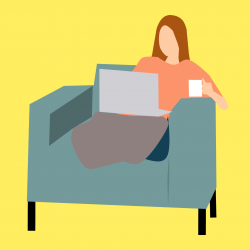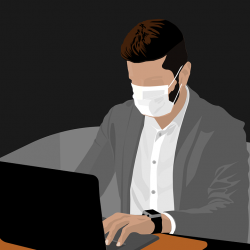To provide the best experiences, we use technologies like cookies to store and/or access device information. Consenting to these technologies will allow us to process data such as browsing behaviour or unique IDs on this site. Not consenting or withdrawing consent, may adversely affect certain features and functions.
The technical storage or access is strictly necessary for the legitimate purpose of enabling the use of a specific service explicitly requested by the subscriber or user, or for the sole purpose of carrying out the transmission of a communication over an electronic communications network.
The technical storage or access is necessary for the legitimate purpose of storing preferences that are not requested by the subscriber or user.
The technical storage or access that is used exclusively for statistical purposes.
The technical storage or access that is used exclusively for anonymous statistical purposes. Without a subpoena, voluntary compliance on the part of your Internet Service Provider, or additional records from a third party, information stored or retrieved for this purpose alone cannot usually be used to identify you.
The technical storage or access is required to create user profiles to send advertising, or to track the user on a website or across several websites for similar marketing purposes.
 The location of a potential employer’s workplace is becoming more important to workers – despite a surge in people working remotely, according to outplacement firm Randstad RiseSmart UK. Almost half (49 percent) of workers now say location is an important factor in choosing an employer, up from just over a third (35 percent) pre-pandemic. (more…)
The location of a potential employer’s workplace is becoming more important to workers – despite a surge in people working remotely, according to outplacement firm Randstad RiseSmart UK. Almost half (49 percent) of workers now say location is an important factor in choosing an employer, up from just over a third (35 percent) pre-pandemic. (more…)






 As many of us cope with yet another lockdown, optimism is easy to misplace but, for disabled workers, this could result in monumental change for future employment. On the month commencing the 25th anniversary of the Disability Discrimination Act and the run-up to International Day of Disabled Persons, could this be the final push for change? As we swing in and out of remote-working, whether you love it or loathe it, one thing is abundantly clear – it can be done. Something that the
As many of us cope with yet another lockdown, optimism is easy to misplace but, for disabled workers, this could result in monumental change for future employment. On the month commencing the 25th anniversary of the Disability Discrimination Act and the run-up to International Day of Disabled Persons, could this be the final push for change? As we swing in and out of remote-working, whether you love it or loathe it, one thing is abundantly clear – it can be done. Something that the 
 Unused office space after coronavirus could cost London-based businesses almost £13 billion according to a new report by
Unused office space after coronavirus could cost London-based businesses almost £13 billion according to a new report by 
 For a lot of employers, the idea of an employee financial wellness program can be something of an afterthought. That is, beyond providing fair pay and a clear policy regarding taxation and benefits, it can seem unnecessary to take any other action regarding employee finances. What’s becoming more and more apparent, however, is that employers do need to take a more active approach toward implementing employee financial wellness programs.
For a lot of employers, the idea of an employee financial wellness program can be something of an afterthought. That is, beyond providing fair pay and a clear policy regarding taxation and benefits, it can seem unnecessary to take any other action regarding employee finances. What’s becoming more and more apparent, however, is that employers do need to take a more active approach toward implementing employee financial wellness programs. 


 The vast majority of UK office workers neither want to continue working remotely after Covid-19 restrictions lift nor make a full return to the 9 to 5. This is despite the fact that many admit that remote work has reduced their productivity. Those are the main claims of new research released by
The vast majority of UK office workers neither want to continue working remotely after Covid-19 restrictions lift nor make a full return to the 9 to 5. This is despite the fact that many admit that remote work has reduced their productivity. Those are the main claims of new research released by 
 Millions of Brits give up more than a month of time each year by working additional unpaid hours, totalling five years overtime in their working life, according to new research by
Millions of Brits give up more than a month of time each year by working additional unpaid hours, totalling five years overtime in their working life, according to new research by 
 Cloud-based access control company
Cloud-based access control company 


 Over half (52 percent) of UK workers think we will see a “reverse brain drain” of talent migration away from big cities like London and Manchester towards regional areas as a result of COVID-19, according to latest research from the
Over half (52 percent) of UK workers think we will see a “reverse brain drain” of talent migration away from big cities like London and Manchester towards regional areas as a result of COVID-19, according to latest research from the 
 With current government advice encouraging all those who can work from home to do so, it’s no surprise that Britain’s businesses and employees are navigating a new normal. New research from
With current government advice encouraging all those who can work from home to do so, it’s no surprise that Britain’s businesses and employees are navigating a new normal. New research from 







December 3, 2020
Hybrid working presents us with a once in a generation opportunity
by Michael Cockburn • Comment, Coworking, Flexible working, Technology